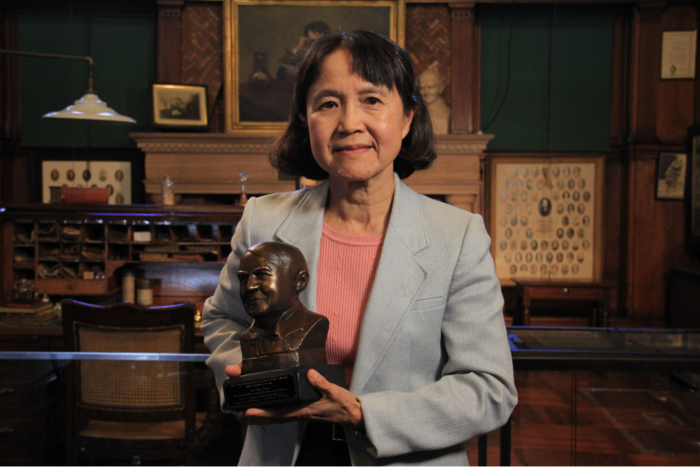SuperSyn of Dr. Margaret M. Wu reduces fuel consumption

The National Academy of Engineering (NAE) of the US hosted its 2019 Annual Meeting on October 6, welcoming its newly-elected members. Dr. Margaret M. Wu, Taipei Tech alumna and retired Senior Scientific Adviser of ExxonMobil Research and Engineering Company, was among the new members, elected for her contribution in synthetic lubricants.
Wu graduated from Taipei Tech (then National Taipei Institute of Technology) with a degree in chemical engineering in 1970 and earned her PhD from the University of Rochester in 1976. She had worked in American Cyanamid Company prior joining Mobil Chemical, where she did research in petrochemistry. In 2002, she was promoted to Senior Scientific Adviser in ExxonMobil Research and Engineering Company. A Senior Scientific Adviser is the highest-ranking researcher in the company, and Wu is the first woman to earn this title.
One of Wu’s major commercialized research is the synthetic material trademarked as SuperSyn, used to produce the world-famous Mobil 1 motor oil. This oil takes advantage of the patented anti-friction and anti-wear technology in SuperSyn to protect engine and reduce fuel consumption in both high- and low-temperature environments. This consequently reduces gasoline consumption and exhaust. Mobil 1 is now the designated motor oil of sports car manufacturers such as Porsche, Mercedes-AMG, Aston Martin, Nissan GT-R, and McLaren.
In her interview with Taipei Tech, Wu talked about her approach to maintain creativity. She pointed out it’s important to keep an open mind when you examine a problem. It is as important to have a solid foundation of knowledge and training in your specific field. “And finally, you need to practice formulating different solutions to a problem in your mind and do real experiments on them. This is the only way to find the best solution.”
Wu also appreciates the solid technical education and training that Taipei Tech provides. She said, “Our instructors have rich experience in the industry, which is not common in every university.” Wu recalls a time when an engineer from Taiwan Sugar Corporation gave a lecture, in which he pointed out the importance of critical thinking and applying the knowledge learned in textbooks to solve problems. “I find the engineering training I had at Taipei Tech particularly useful when I need to solve petrochemical and petroleum refining issues.”
